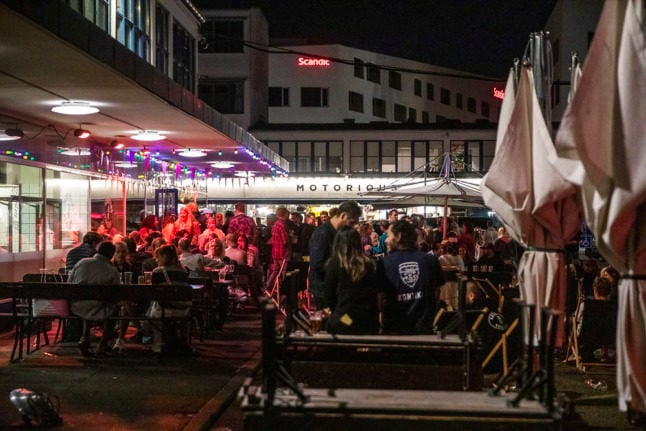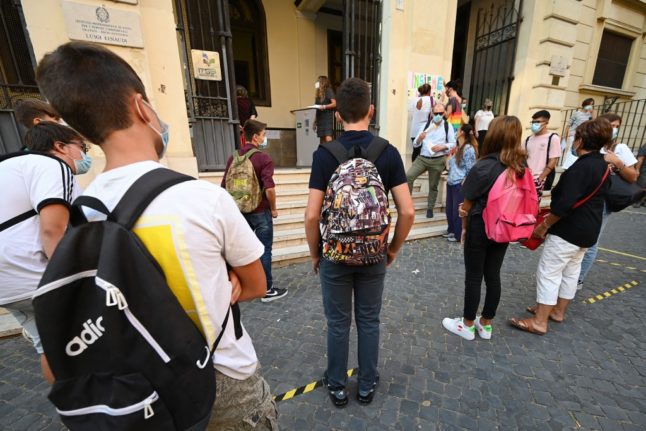September 1st saw most Denmark’s remaining Covid-19 restrictions lifted. Nightclubs and discos reopened, 2am closing times for bars and restaurants were scrapped, corona passports are no longer needed in bars, restaurants or gyms, and full-scale music festivals are again permitted.
EXPLAINED: What changes about life in Denmark in September 2021
From September 10th, Covid-19 will no longer be classed as a “critical threat to society”. That means the government will lose the legal powers to impose bans on people gathering, demands for Covid-19 passes, and demands for face masks.
Instead, the coronavirus will continue to be rated an infectious disease which is “dangerous to public health”, giving the government and health authorities additional powers to test people and collect and share health data.
We asked you to share your thoughts. Thanks to all who took the time to get in touch.
More of our readers expressed concern that restrictions were being lifted too early compared to those who think things should have moved faster. For the below question, more people chose the first option (‘It is happening too early’) than any other, while the second-most popular choice was ‘A bit faster than I would like’.

Gustavo was amongst those who feel Denmark is throwing caution to the wind by lifting all restrictions, citing the reduction in testing capacity as a measure being lifted too early. He also called for negative tests, rather than proof of vaccination, to still be required to access some indoor services.
He said he would be taking extra measures to protect himself including taking a rapid test after potential exposure, keeping a distance from strangers, and sticking to mainly outdoor activities.
Another reader Elisabeth, a former frontline worker in the United States who moved to Denmark last year, said she would continue to where a face mask in shops and continue to limit contact with others.
She felt mask use in shops and on public transport (and their introduction at schools), as well as higher testing levels, should be retained at the current time.
Elisabeth said she was concerned about the risk of long Covid for all age groups, hospitalisations in children, and the development of new variants.
“I am worried the quick testing infrastructure will be dismantled. What Denmark has done really well has been making high-capacity testing really, really easy and well-run,” another reader, who also said they would continue to use a face mask, wrote to us.
A number of others also said they would continue to use masks in certain settings, with several expressing concern about the likelihood of new lockdowns should cases explode.
The potential for the development of a new vaccine resistant or more infectious variant was also mentioned by some readers.
“I am worried that with the slow rate if vaccinations amongst a certain demographic and a lack of protection for the youngest people who are most vulnerable now, variants will continue to evolve and become quickly immune to vaccinations. If we want to keep people protected, keep hospitals below capacity and keep businesses going, masks could prevent us from the worst consequences,” wrote Jonathan.
“I find it unsettling that the school children are back at school with zero means of protecting themselves. My daughter, who is too young to be vaccinated, also has an immune deficiency so we are worried constantly,” a reader, who asked to remain anonymous, wrote.
“The CDC [Centers for Disease Control and Prevention, ed.] is very clear that school is safe when precautions are taken. Denmark doesn’t seem to care that some of us parents don’t want to take that risk with our children,” she also said.
Some people said that they felt Denmark’s timing was about right and others praised the country’s management of restrictions in general.
“For the most part compared to my homeland, the Danish government has been good at encouraging people to do their best rather than attacking people who find restrictions a challenge or difficult for whatever reason. Continue with encouraging guidelines around good hand hygiene,” wrote Ida.
“I really hope people don’t end up standing to close to me in supermarket queues again. I loved not feeling like I was being pushed forward by impatient people,” she added.
A reader from the US, Daniel, who moved to Denmark this year, said he felt restrictions had been lifted a bit slower than he would have liked.
“I am a pro-get back to normal ASAP guy. While I respected and adhered to any laws when required, I think some measures taken were examples of government overreach and some should have been reserved for specific places and times only,” Daniel said.
He said he would take personal actions to help protect against the pandemic, as he did while restrictions existed.
“Will continue to use common sense and not get too close to people I don’t know, keep an eye out for people with symptoms and evade if possible. Be cognizant of touching railings, counters, doorknobs etc,” he wrote.
Another reader, who preferred to remain anonymous, also said they felt restrictions should have gone slightly sooner.
“At this point, no restrictions should be kept. Maybe 10 days isolation for infected people sounds reasonable,” they wrote.



 Please whitelist us to continue reading.
Please whitelist us to continue reading.
Member comments